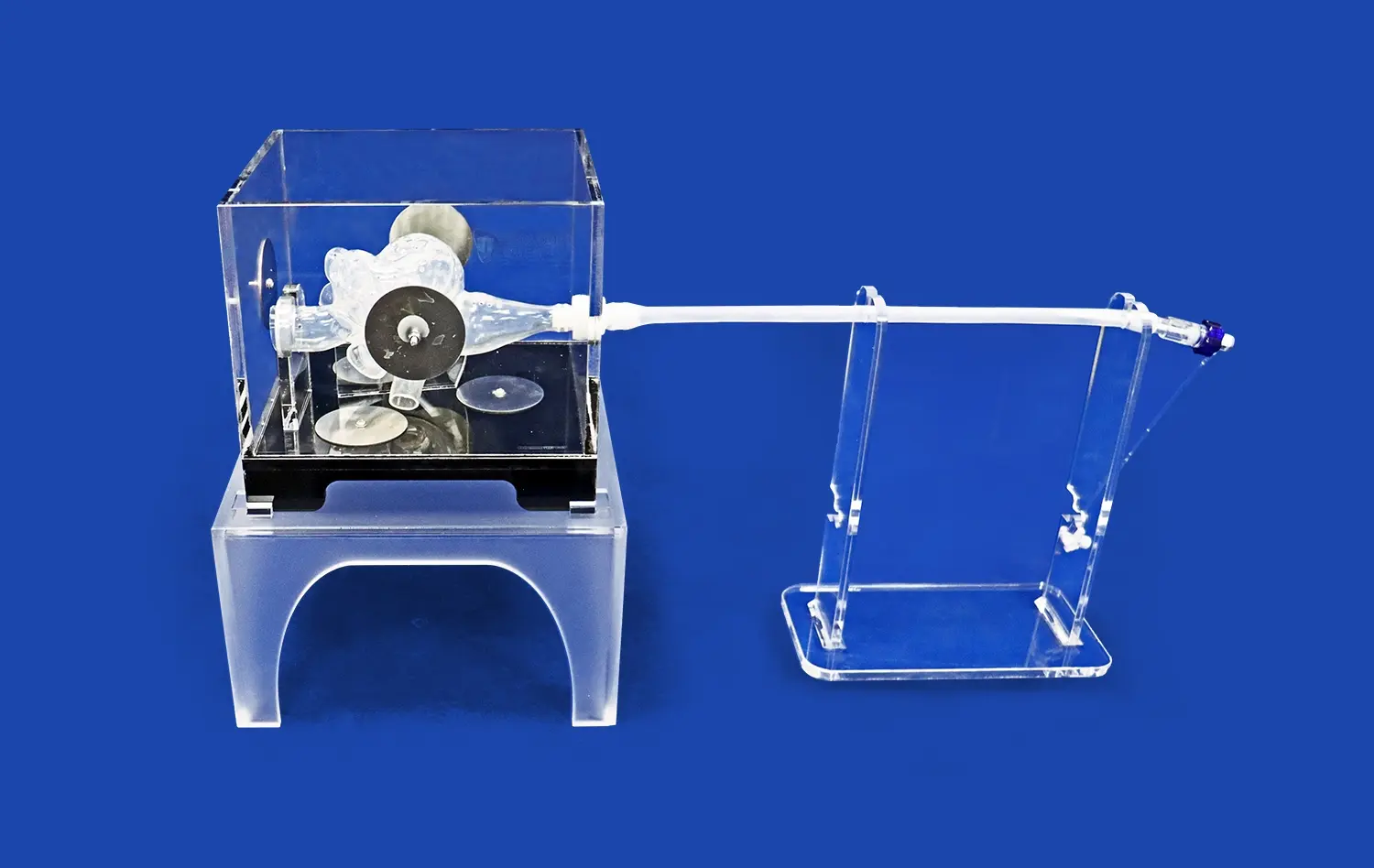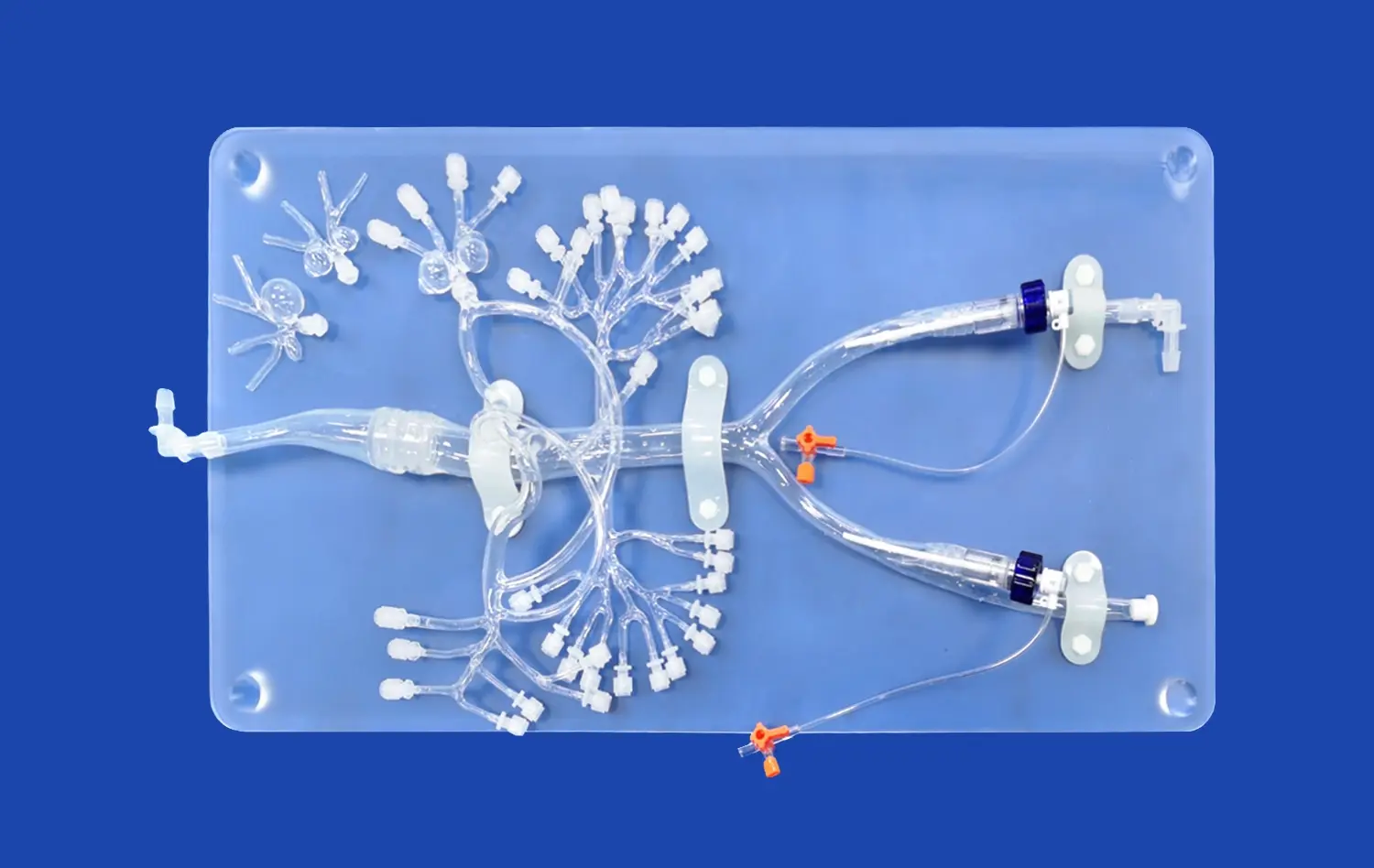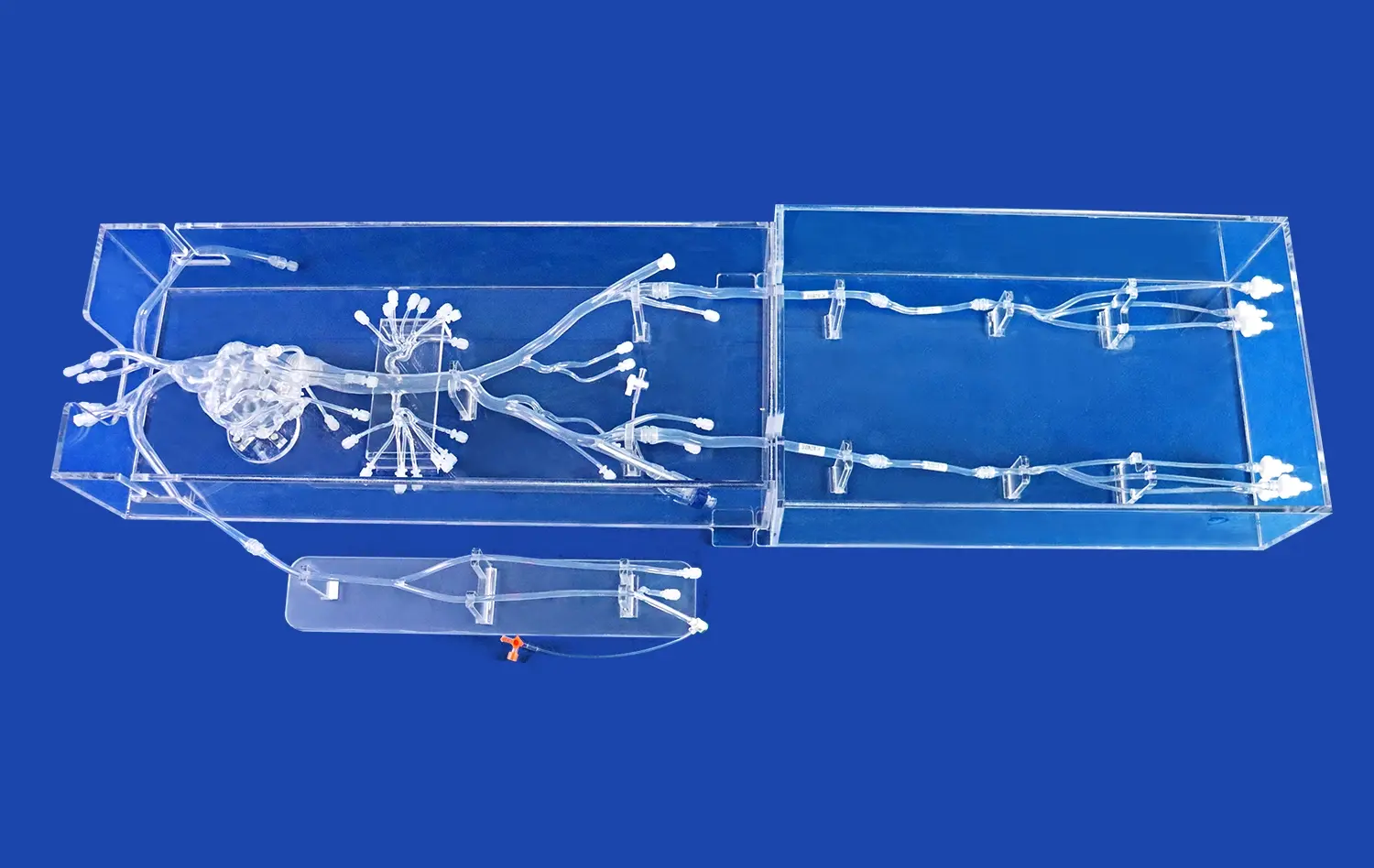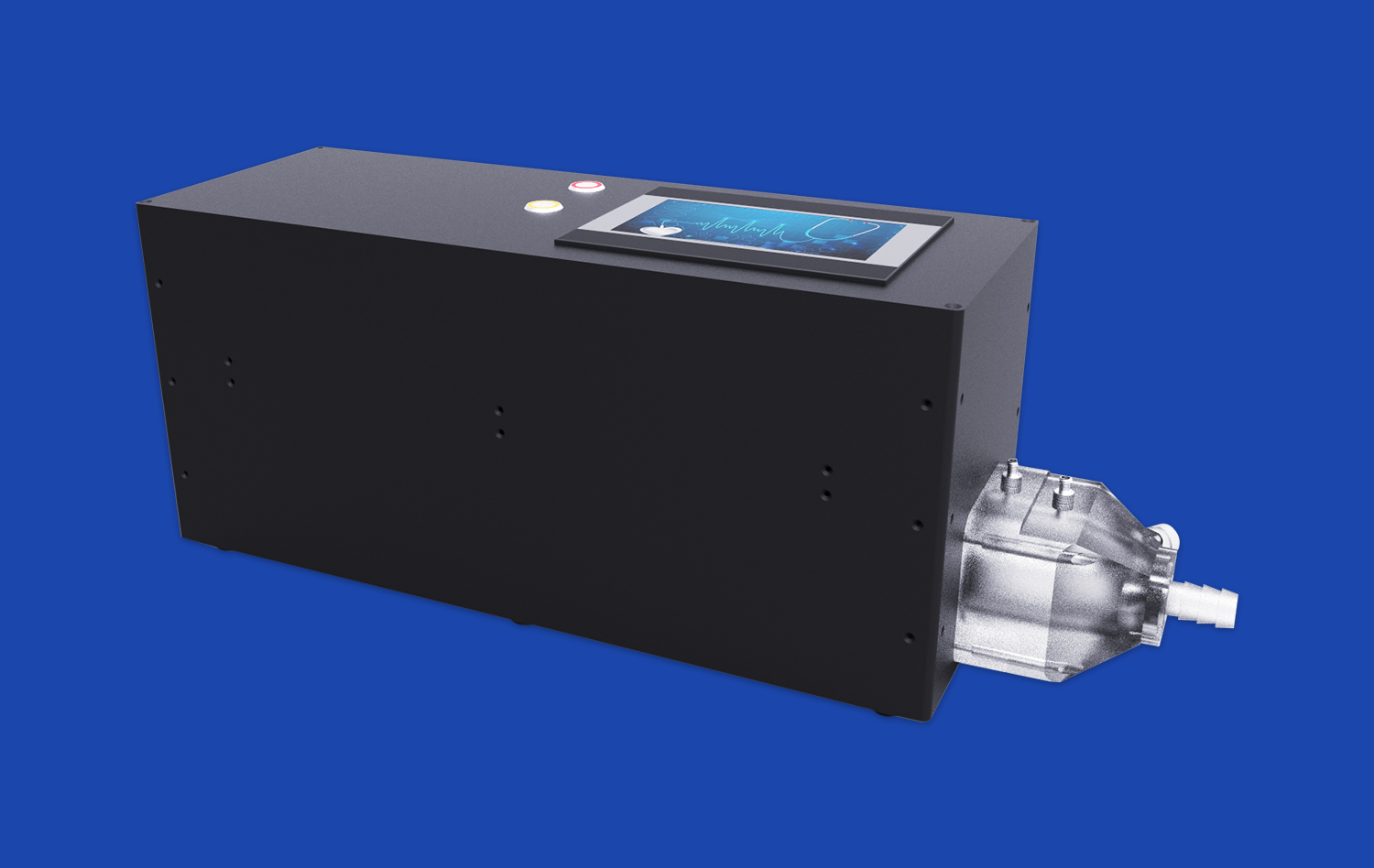How Can Simulation Enhance Device Sales Presentations?
Bridging the Gap Between Theory and Practice
Neurovascular simulators serve as a powerful bridge between theoretical knowledge and practical application. When presenting new devices or techniques, sales representatives can utilize these simulators to provide a tangible, hands-on experience that resonates with potential buyers. This approach allows healthcare professionals to see and feel how a device performs in a setting that closely resembles real-world scenarios, fostering a deeper understanding and appreciation of its capabilities.
Demonstrating Complex Procedures with Clarity
The intricate nature of neurovascular interventions can make it challenging to convey the nuances of new devices or techniques through traditional presentation methods. Neuro vascular simulators offer a clear, visual representation of complex procedures, allowing presenters to showcase the unique features and benefits of their products in action. This clarity can be particularly impactful when demonstrating interventions for conditions such as intracranial aneurysms, arteriovenous malformations (AVMs), or cerebral arteriovenous fistulas.
Tailoring Presentations to Specific Audiences
One of the key advantages of neurovascular simulators is their adaptability. Presenters can customize scenarios to address the specific interests or concerns of different stakeholders, whether they're neurosurgeons, interventional neuroradiologists, or hospital administrators. This flexibility allows for targeted demonstrations that highlight how a device or technique can address particular clinical challenges or improve patient outcomes in specific scenarios.
Live Demonstration of Device Performance in Realistic Vascular Models
Showcasing Device Maneuverability and Precision
Advanced neurovascular simulators, like those offered by Trandomed, provide an ideal platform for demonstrating the maneuverability and precision of interventional devices. The realistic vascular models, which include features such as the Circle of Willis, internal carotid arteries, and various types of aortic arches, allow presenters to showcase how devices navigate through complex anatomical structures. This live demonstration can be particularly effective in highlighting the unique selling points of guidewires, catheters, and stents designed for neurovascular applications.
Simulating Challenging Anatomical Variations
One of the strengths of modern neuro vascular simulators is their ability to represent a wide range of anatomical variations and pathologies. Presenters can leverage this feature to demonstrate how their devices perform in challenging scenarios, such as highly tortuous vessels, bifurcations, or in the presence of stenoses. By showcasing device performance across various anatomical configurations, sales teams can build confidence in the versatility and reliability of their products.
Real-time Feedback and Performance Metrics
Many advanced simulators incorporate sensors and tracking systems that provide real-time feedback on device performance. This feature allows presenters to offer objective data on factors such as navigation time, precision of placement, or the effectiveness of flow diversion in aneurysm models. Such quantitative metrics can be powerful tools in demonstrating the superiority of a device or technique compared to existing solutions.
Creating Immersive Training and Marketing Experiences for Stakeholders
Hands-on Workshops for Healthcare Professionals
Neurovascular simulators open up new possibilities for immersive training experiences. Companies can organize hands-on workshops where healthcare professionals can practice using new devices or techniques in a risk-free environment. These sessions not only serve as valuable training opportunities but also as powerful marketing tools, allowing potential users to gain firsthand experience with the products. The ability to practice procedures such as intracranial thrombectomy or aneurysm coiling on high-fidelity models can significantly impact purchasing decisions.
Virtual and Augmented Reality Integration
The integration of virtual and augmented reality technologies with physical neuro vascular simulators creates even more engaging and immersive experiences. These hybrid systems can provide enhanced visualization of device-tissue interactions, offer guided tutorials, or simulate rare pathologies that might not be feasible to represent in physical models alone. Such cutting-edge presentations can leave a lasting impression on stakeholders and differentiate a company's offerings in a competitive market.
Customized Marketing Events and Product Launches
Neurovascular simulators can be the centerpiece of customized marketing events or product launches. Companies can create interactive experiences where attendees can observe or participate in simulated procedures, fostering engagement and generating buzz around new products. These events can be tailored to various settings, from large medical conferences to smaller, focused gatherings of key opinion leaders in the field of neurovascular intervention.
Conclusion
The integration of neuro vascular simulator into marketing and demonstration strategies represents a significant leap forward in how medical devices are presented and evaluated. By offering realistic, hands-on experiences and the ability to showcase products in action, these simulators enhance understanding, build confidence, and create memorable impressions on potential buyers. As the technology continues to evolve, its role in sales, training, and marketing is likely to become even more central, reshaping the landscape of neurovascular device marketing.
Contact Us
Elevate your neurovascular device marketing and training efforts with Trandomed's state-of-the-art simulation solutions. Our customizable, high-fidelity models offer unparalleled realism and versatility, enabling you to create impactful demonstrations and immersive learning experiences. Discover how our advanced simulators can transform your approach to product presentations and stakeholder engagement. For more information or to schedule a demonstration, contact us at jackson.chen@trandomed.com.
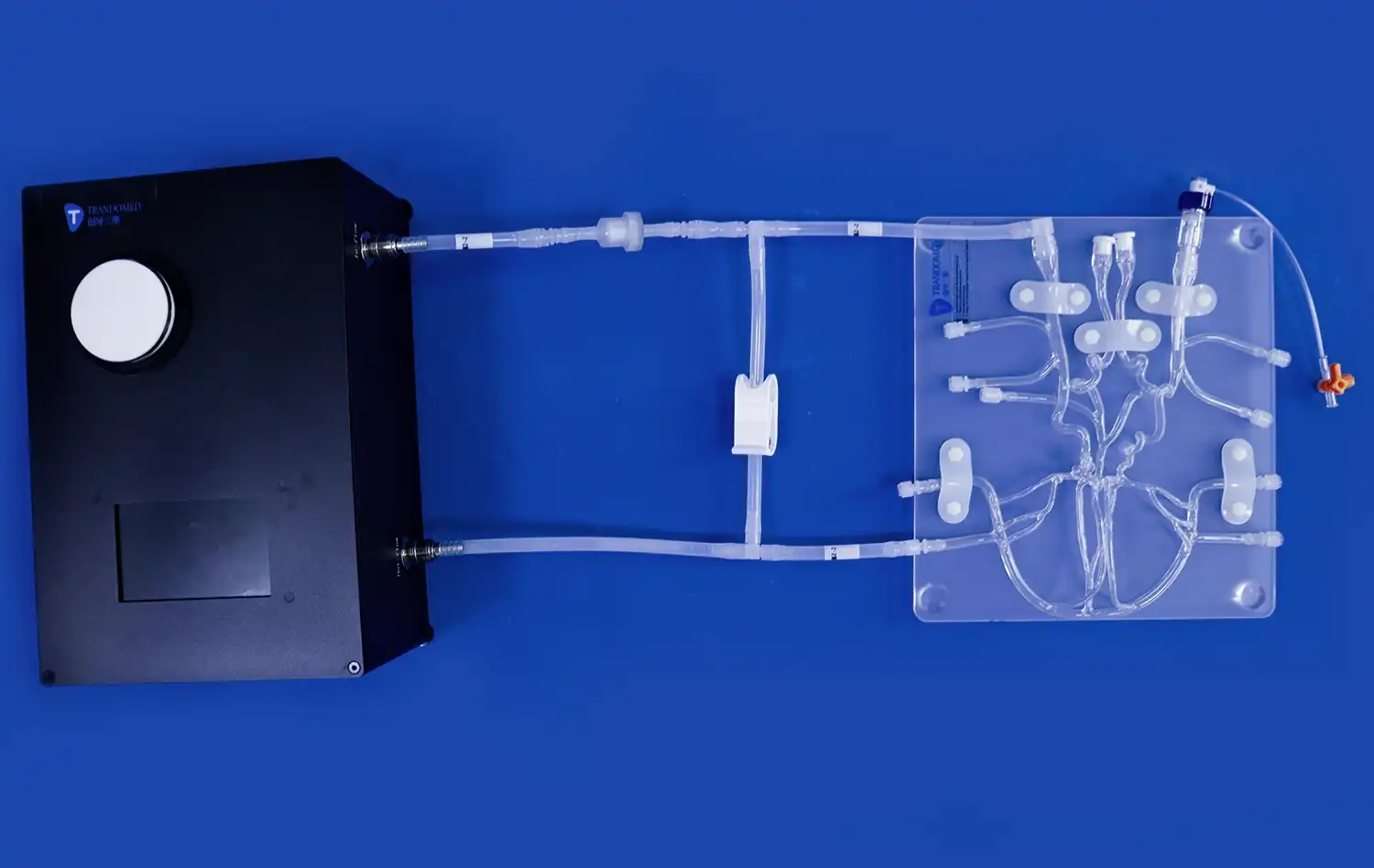
_1736214519364.webp)
